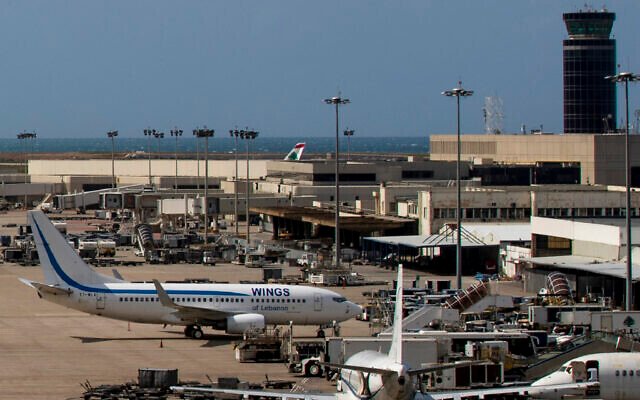Hezbollah is reportedly using Beirut’s Rafic Hariri International Airport to store a cache of Iranian weapons, according to whistleblowers who spoke to The Telegraph. The allegations, revealed on June 20, 2024, have sparked widespread concern and calls for an international investigation into the use of civilian infrastructure for military purposes.
The whistleblowers, described as insiders familiar with Hezbollah’s operations, claim that the militant group has been storing advanced weaponry and missile components smuggled in from Iran at facilities within the airport. These weapons are allegedly intended for future use in conflicts against Israel and to bolster Hezbollah’s military capabilities in the region.
“Hezbollah is exploiting the airport’s civilian status to shield its activities from scrutiny and potential attacks. The weapons are being stored in secure locations within the airport complex, which are off-limits to regular airport personnel and security forces,” one whistleblower told The Telegraph. The claims have yet to be independently verified, but they highlight the ongoing concerns about the militarization of civilian infrastructure in Lebanon.
Israeli officials have responded with alarm to the reports, calling for immediate action to address the potential threat posed by the weapons cache. “The use of Beirut’s civilian airport for military purposes by Hezbollah is a clear violation of international norms and poses a significant threat to regional stability,” said an Israeli defense official. “We call on the international community to investigate these claims and take decisive action to prevent Hezbollah from using civilian infrastructure for its military agenda.”
The Lebanese government has not yet issued an official response to the allegations. However, the reports are likely to increase pressure on Beirut to address the issue and demonstrate that it is not complicit in Hezbollah’s activities. Lebanon has long been criticized for allowing Hezbollah to operate with a high degree of autonomy within the country, contributing to tensions with neighboring Israel and complicating Lebanon’s relations with the international community.
The United States and European Union have also expressed concern over the allegations. The US State Department issued a statement condemning the use of civilian infrastructure for military purposes and calling for a thorough investigation. “We are deeply concerned by reports that Hezbollah is using Beirut’s airport to store Iranian weapons. This practice endangers civilian lives and undermines regional security. We urge an immediate investigation and appropriate measures to prevent further militarization of civilian infrastructure,” the statement read.
The European Union echoed these sentiments, emphasizing the need for international oversight and accountability. “The reported use of a civilian airport for storing weapons is a serious violation of international law and poses a significant risk to civilian safety. We call for a transparent investigation to ensure accountability and prevent the further escalation of tensions in the region,” said an EU representative.
The allegations come amid a backdrop of increasing regional tensions, with Hezbollah’s ties to Iran and its military activities in Lebanon and Syria being key points of concern for Israel and its allies. The group’s extensive military infrastructure and stockpiles of weapons have been a longstanding issue, with Israel frequently highlighting the threat posed by Hezbollah’s arsenal.
As the situation develops, the focus will be on whether the international community can effectively address the potential threat and prevent the misuse of civilian infrastructure for military purposes. The reported activities at Beirut’s airport underscore the challenges of monitoring and controlling the flow of weapons in a region marked by conflict and instability.



